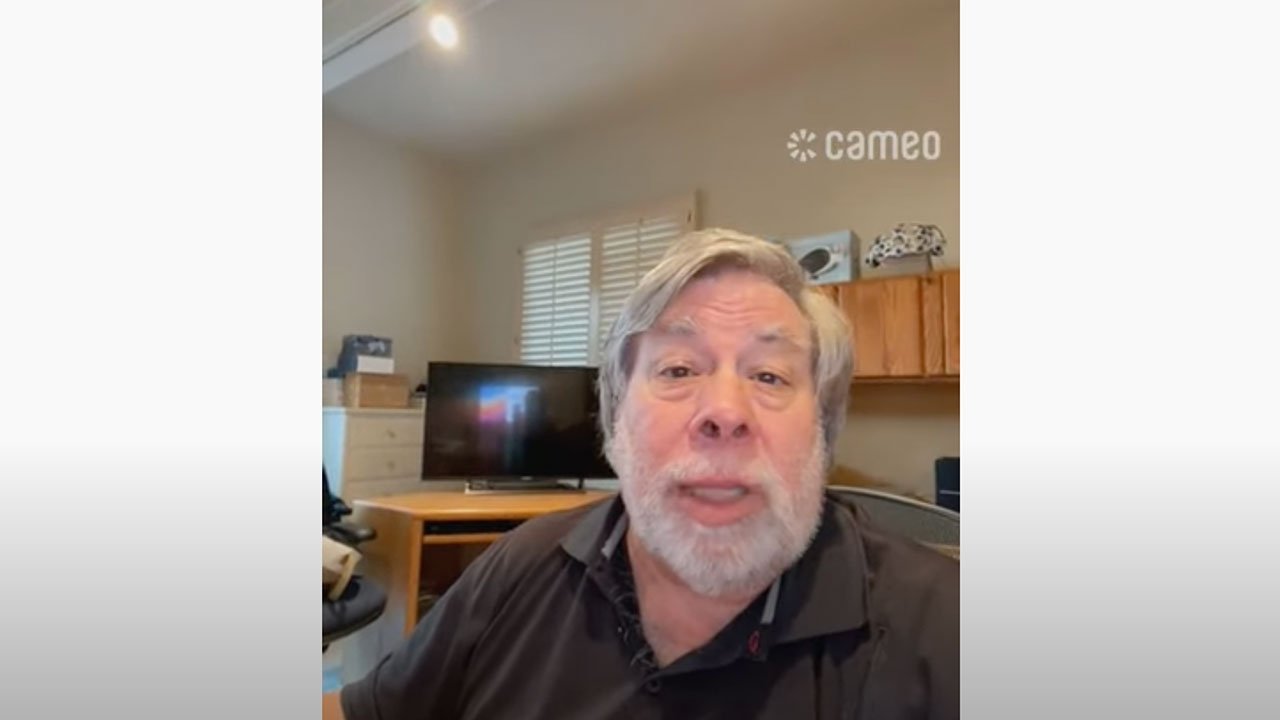Apple co-founder Steve Wozniak is a right to repair advocate
Last updated
Apple co-founder Steve Wozniak has spoken out in support of the right to repair movement, saying an open source mindset helped lay the foundation for what has become the world's most valuable tech company.
Wozniak discussed his thoughts on the matter in response to a request on Cameo, an app that lets users buy personalized videos from celebrities. The question was posed by right to repair advocate Louis Rossman, who runs the non-profit Repair Preservation Group Action Fund.
In a nearly 10-minute video subsequently posted to YouTube, Wozniak said he reads reports on the issue, but until now has been too busy to get involved.
"I'm always totally supportive and I totally think the people behind it are doing the right thing," he said of the movement. "We wouldn't have had an Apple had I not grown up in a very open technology world — an open electronics world."
He goes on to list his bonafides as a seasoned electrical engineer and begins to ramble about the frontier days of consumer electronics. There is a notable aside on vacuum tubes, which could be popped out of a radio or television and taken to local supermarket for testing and replacement. That process is a far cry from today's repair procedures.
One might argue that modern electronics are too advanced, the architecture too sophisticated — and if you ask companies like Apple, dangerous — for consumers to fix. Wozniak suggests that might not be the case in some circumstances.
"If you know what you're doing, and you're doing certain steps that others have solved and found worked pretty well, you could repair a lot of things at low cost," he says. "So why stop them? Why stop the right to repair people?"
Wozniak goes so far as to loosely compare the issue with Ma Bell (Bell Telephone Company) and the monopoly it imposed on the telecommunications industry.
The Apple co-founder notes the Apple II, the computer that sustained Apple for roughly a decade, shipped with full schematics, designs, software, and code listings. It was to some extent an open source platform that propelled Apple to greatness, though Wozniak is seemingly conflating right to repair with the ability to conduct aftermarket modifications on owned equipment.
The discussion slowly meandered back to repair rights, with Wozniak saying in no uncertain terms that he believes "that companies inhibit it because it gives the companies power, control over everything."
"And I guess in a lot of people's minds, power over others equates to money and profits," he said. "Hey, is it your computer or is it some company's computer? Think about that. It's time to start doing the right things."
Apple, for its part, has vigorously fought right to repair initiatives in the U.S. and abroad, lobbying against bills that would expand consumer repair options beyond first-party services and company-authorized facilities. The tech giant argues that in-house repairs ensure a consistent user experience and protect consumers from potential harm.
Save for New York, the company has been largely successful in squashing states' right to repair laws, but that could change in the near future. It was reported this week that President Joe Biden is expected to ask the Federal Trade Commission to draft new rules that give consumers more leeway to repair products at independent shops or on their own.
Keep up with everything Apple in the weekly AppleInsider Podcast — and get a fast news update from AppleInsider Daily. Just say, "Hey, Siri," to your HomePod mini and ask for these podcasts, and our latest HomeKit Insider episode too. If you want an ad-free main AppleInsider Podcast experience, you can support the AppleInsider podcast by subscribing for $5 per month through Apple's Podcasts app, or via Patreon if you prefer any other podcast player.
 AppleInsider Staff
AppleInsider Staff














 Amber Neely
Amber Neely
 Thomas Sibilly
Thomas Sibilly

 William Gallagher
William Gallagher
 Malcolm Owen
Malcolm Owen
 Christine McKee
Christine McKee










56 Comments
Because of “freedom” we will have:
- Smartphone without basic apps, and we will forced to download third party apps
- Devs desperate for all pirated and modded softwares thanks to sideloading.. for freeeeedom, Android style!
- terrible repairs with third party low quality parts, more bulky phone since manufacture will need to make things to replace easier without paying a certified shop. Sure user will blame Apple for iPhone without water resistance after a repair, for audio working badly, ghost touch on tablets and go on.. but we will really free and we would saved 10 dollars on repair!
He just pops up once or twice a year now so that everybody remembers he’s still alive. See you around the holidays, Woz.
There he is again... Just popping up so now an then to give his opinion.. Just to remember people he also worked at the foundation of Apple. Electronics equipment in the seventies not really comparable with 21 century ones. But right to repair yes. But who will be blamed or get bad reputation if not done properly by a repair shop in some garage Woz.... Yes Apple!
Cannot understand why some consumers are against repair/upgradability.